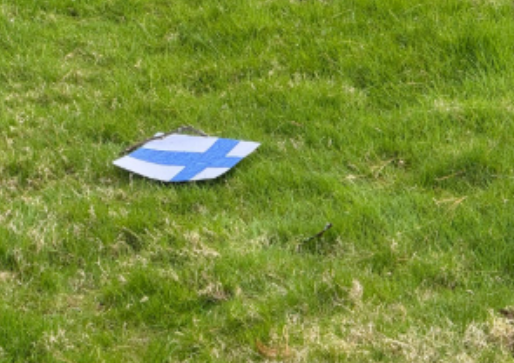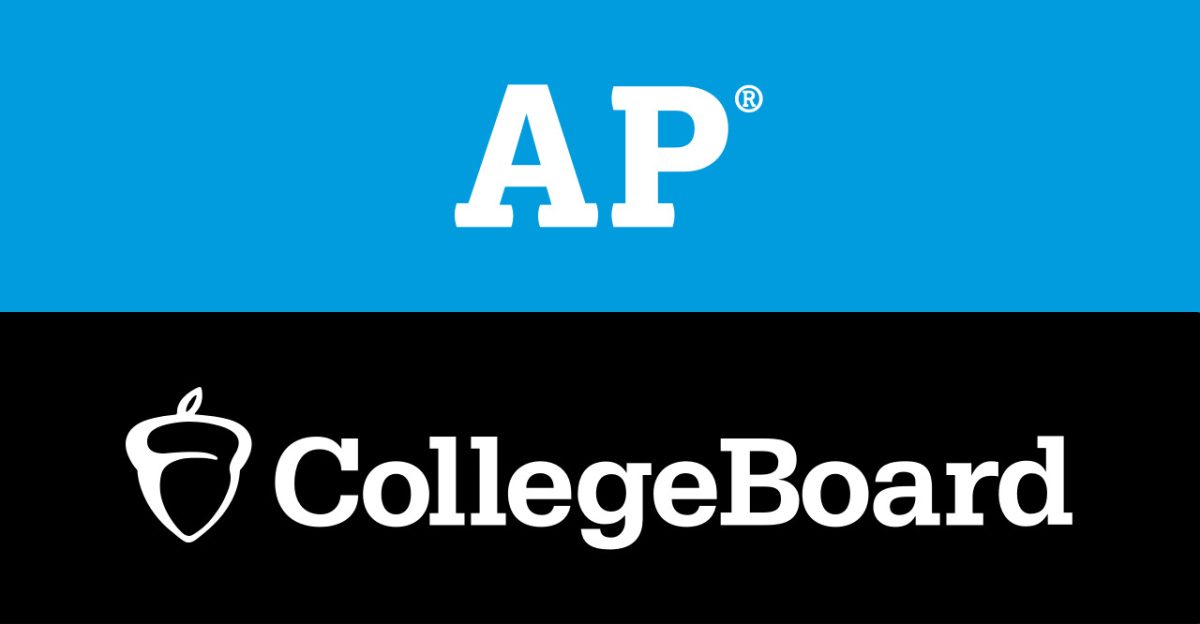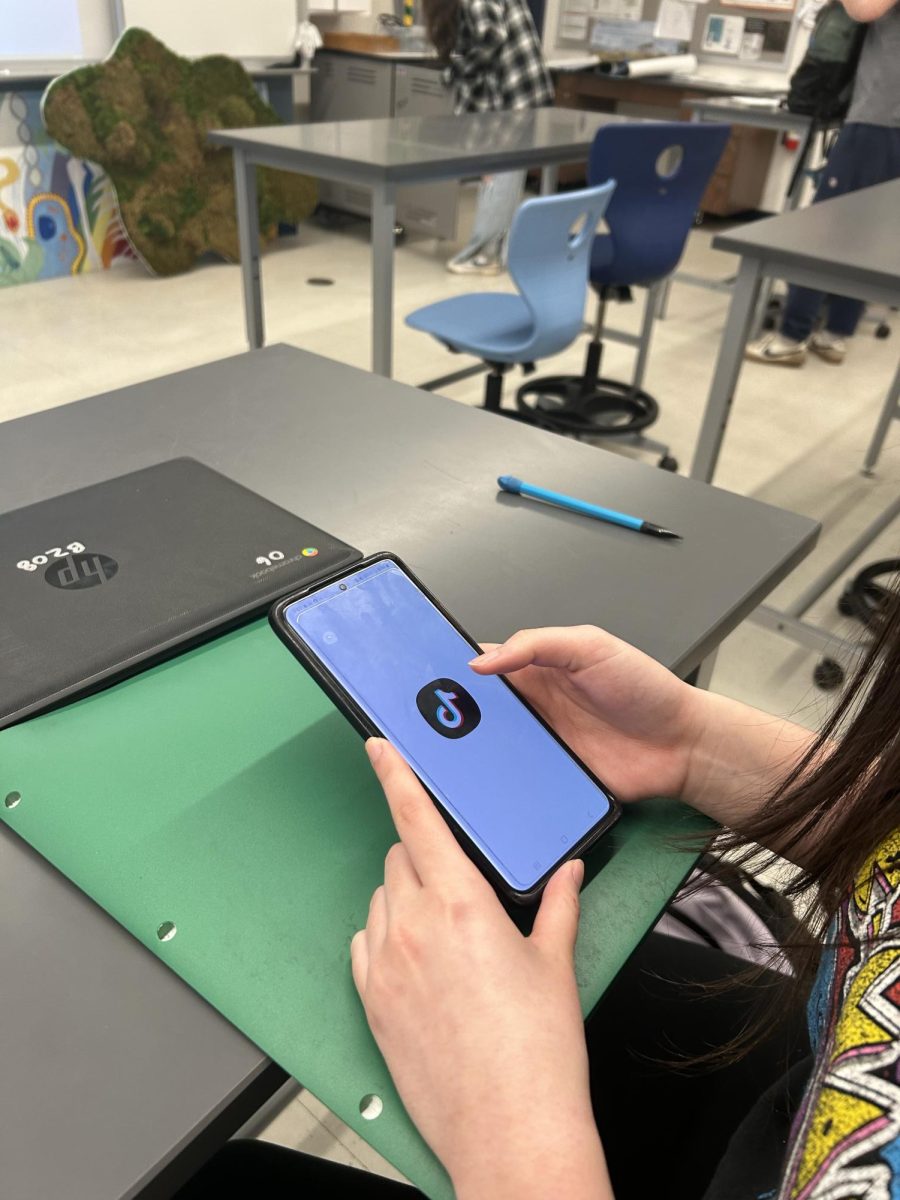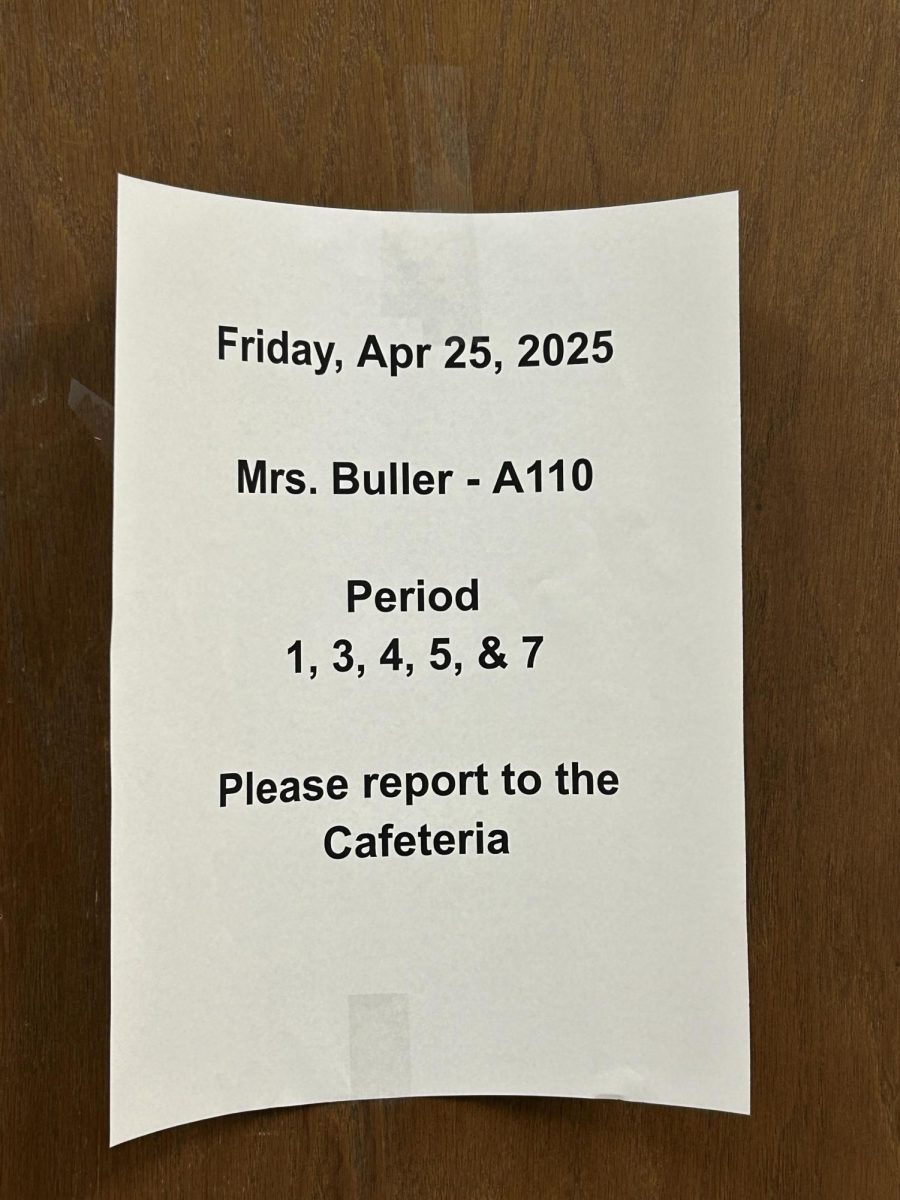After collecting data from Hall students with a menstrual equity survey, it was found that over 40% of Hall students that get their periods are affected by menstrual inequity. A law originally passed in July of 2021 requires CT public schools to provide these products in their bathrooms, so why hasn’t this been implemented at Hall? A lack of funding and vandalism has made it difficult for schools to provide period products to students, along with a bill that was passed recently this year delaying the implementation of menstrual equity standards.
House Bill No. 5506 states that “. . .on and after September 1, 2023, each local and regional board of education shall provide free menstrual products,” in all women’s, all gender-neutral, and at least one men’s bathroom. Not only that, but it needs to be presented “ . . .in a manner that does not stigmatize any student seeking such products.” While the law was first set to be in effect in 2023, Public Act No. 23-160 pushed that date back, and now CT schools have until September 1, 2024 to meet the requirements that the law demands.
Out of 68 students that took our survey, 74.3% of those who get their periods reported that they would be “very likely,” or “somewhat likely” to use period products provided by Hall. While this result can’t represent all Hall students who get their periods, it does contribute to a theme. Access to period products hasn’t been consistently provided, and students would rather they were.
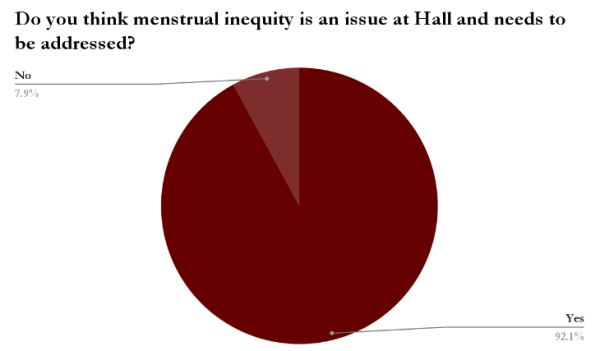
Multiple students commented that their period is something that affects their academics, their comfort, and their finances. “It’s super annoying to constantly worry about having period products on my person” said a cisgender female student at Hall. “It can feel awkward to have to ask a friend for some [period products] or to be seen bringing them to the bathroom. Because of social stigma, it would make my life so much easier to have period products in all the bathrooms and not have to worry about constantly having them.”
Despite Hall’s efforts, larger-scale issues have arisen. Lack of funding makes this law difficult for schools to implement, since this is an unfunded state mandate. School nurse Hawkins said, “. . .this law is great.” But, she has concerns that “ . . . these products are very expensive” and the “ . . . budget will need to be increased significantly.”
Each CT school district has the responsibility to come up with funds for this project before 2024. Consequently, the budget will have to change which, Principal Zittoun explained, might affect other resources in the school.
Vandalism of period products, sparked by social stigma and a lack of respect, has been an issue at Hall in the past. However, Principal Zittoun isn’t concerned about this issue resurfacing. “Knowing the students of Hall who have historically and generally stepped up and shown a tremendous amount of respect for self and others and responsibility, I’m not so worried.”
Menstrual inequity only impacts minorities, like women and trans people, and can therefore often be left out of the conversation of what we can do to help our community with period equality. People from lower-income families are also strongly impacted. Statistics from our survey show that genderqueer people are also especially impacted. An assigned female at birth (afab) non-binary student said, “It sucked not having the product I needed when it happened, it’s not something I can control.” So, with such a large percentage of students affected, what is Hall doing to bring these minority issues into the conversation?
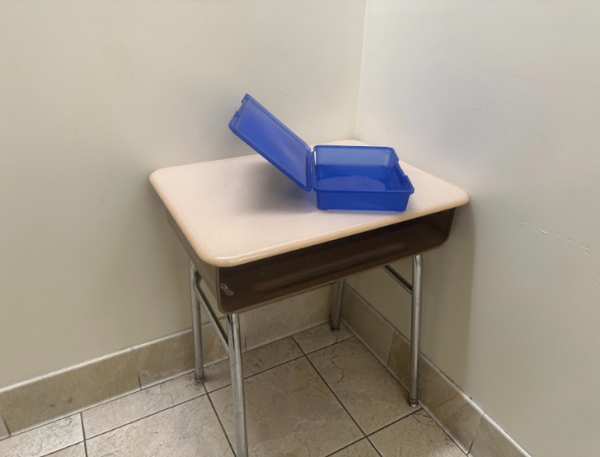
Well, products will be provided starting next year, free of charge. “I do fully anticipate by Sept. 1, 2024, that there will be access to free menstrual products in all the women’s restrooms, all-gender restrooms and at least one men’s restroom.” Said Principal Zittoun in regard to the district’s compliance with the recent menstrual equity law. In the meantime, free period products can only be made available through student clubs and movements. Hall’s Feminist Coalition has previously done fundraisers and product drives in order to provide menstrual products in bathrooms, but since this agreement was made 6 years ago, Hall’s demand for these products has outweighed the club’s ability to supply them. For now, students have to bring their own period products, or they can use nurse-provided pads or tampons for emergencies.

